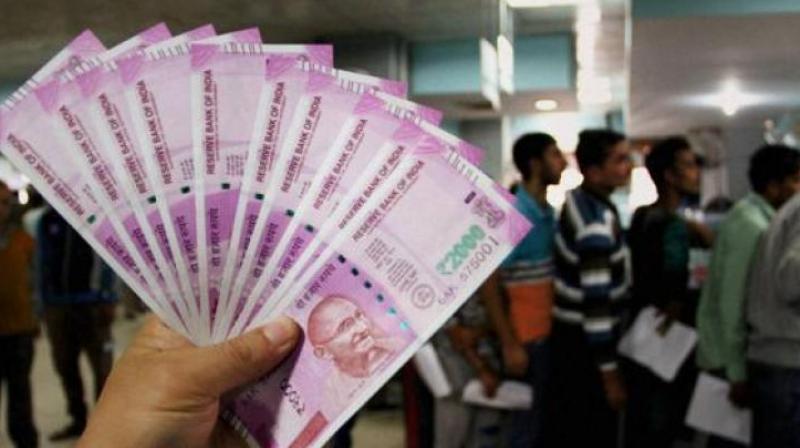Trade war risk, rising oil costs seen keeping rupee near record low: report
Rupee hit an all-time low of 69.09 per dollar last week and is the worst-performing currency in Asia this year.

Bengaluru: Global trade tensions and rising oil prices are expected to weaken India’s rupee over the next year, a Reuters poll has found, dragging the currency closer to the record low hit last week against the dollar.
While economic growth has picked up and India has retained its spot as the fastest growing major economy this year, the rupee hit an all-time low of 69.09 per dollar last week and is the worst-performing currency in Asia this year.
The rupee, already down more than 7 per cent this year, has been pressured by a sell-off in emerging markets driven by the daily escalation in global trade tensions and on worries of a widening current account deficit from the rising price of oil, India’s biggest import item.
In the poll of 45 strategists taken July 2-5, the rupee was forecast to weaken to 68.90 per dollar by June 2019, slightly down from Wednesday’s close of 68.69. Just last month, the rupee was expected to have strengthened in a year’s time.
“We are pretty bearish (on the rupee) at this moment, given all the circumstances combined. Not only high oil prices but also the trade war that has been taking off,” said Hugo Erken, senior economist at Rabobank.
“So, although India has a large internal market, and I still think the Indian recovery will last, the external pressure is really building at the moment. This is not good for the Indian currency.”
What has changed over the past month is that the prospect of a global trade war has increased and oil prices have risen sharply. US crude futures are up 13 per cent since June 1 and were trading near a 3-1/2-year high on Wednesday.
“India is obviously one of those countries with higher exposure to commodities, especially oil imports, dragging the current account to a deeper stretch going forward and this is basically negative for INR,” said Prakash Sakpal, economist at ING, who has the most pessimistic 12-month call of 72.80.
India’s finances will also be hit by the increase to the government-mandated price for summer-sown crops to the highest since Prime Minister Narendra Modi came to power in 2014 as he looks to woo millions of poor farmers ahead of a general election next year.
While that is likely to keep foreign investors wary, Asian currencies and foreign exchange markets will more likely be driven by how the current trade dynamics play out after the July 6 deadline passes for the United States to impose tariffs on some of the Chinese goods it imports.
A separate poll on China’s yuan showed it will have failed to reverse June’s losses against the dollar even a year from now.
On the rupee, though, not all respondents were bearish.
While more than a quarter of 46 analysts who had a 12-month view forecast the Indian currency to weaken to the crucial 70 mark or beyond to the dollar, more than 45 per cent of respondents predicted the currency would appreciate. The remainder expect the rupee to stay around current levels.
Several strategists said the expected policy tightening by the Reserve Bank of India would help the rupee.
“The reason we think that it (the rupee) will strengthen, is our forecast for domestic monetary policy...there will be a couple of more rate hikes this year, which is slightly more than expected and that should provide some support to the currency,” said Shilan Shah, senior India economist at Capital Economics.
“But also, we are forecasting a fall in oil prices over the remainder of this year. If that proves to be the case, then that should lead to some strength in the rupee.”

